| |
|
|
September 2021 Volume 6 Issue 3 Plant-Rich Diet: Fast Track to Slashing Methane |
|
|
|
This month we feature the vital resources offered by ESRAG's Plant-Rich Diet Task Force. Right on the heels of the UN's urgent call to action on methane, the Task Force's 15-day Challenge will equip you to lead by example, demonstrating simple life-style changes that will have immediate impact in slowing greenhouse gas emissions in this critical decade.
Dr. Chris Puttock and Salvador Rico continue their World Rivers seminars on Wednesdays: the schedule and registration link are below. You'll also find an invitation from another ESRAG Task Force and the Rotary Action Group for Reproductive, Maternal, and Child Health (RMCH).
In this issue: • Plant-Rich Diet Toolkit • UNEP: Reduce Methane NOW! • ESRAG Sustainability Seminars in September • Plastics Solutions Task Force Seeks Input • Sept. 20 Rotary Webinar on Maternal and Child Health and Family Planning
|
|
|
|
|
|
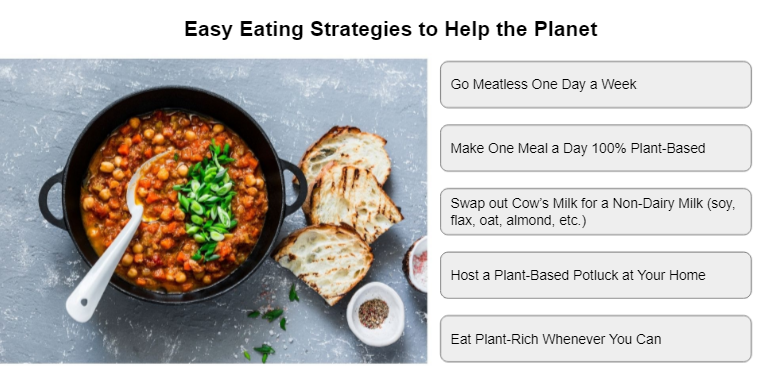
Effective actions any Rotarian can take
As catastrophic wildfires and storms
hammer communities in many countries across the planet and leaders prepare for tough reckoning at this
fall’s UN Climate Conference, an ESRAG Task Force is handing you the tools to
lead a movement that will slash methane emissions and protect carbon sinks, without having to wait for public policy to change. It’s the 15-Day Global Plant-Rich Diet
Challenge, which starts Oct. 1. Sign up here.
Reducing our consumption of animal
protein “is an effective demand-side solution to the climate crisis,” explains
Ambaree Majumber, Co-Chair of ESRAG’s Plant-Rich Diet Task Force (PRD) and a
member of the Marina City Rotary Club in Singapore. “We envision a world in which Rotarians are
leading a global food system transformation to protect and preserve our
planet.”
Industrialized animal agriculture is
the world’s second-leading producer of human-caused methane emissions: 32% of
the total, just behind the 35% generated by the fossil fuel industry. The Task
Force has compiled short and engaging materials to equip Rotarians to lead by
example: encouraging communities that eat a lot of meat to choose more
plant-based meals. Advocating for a sustainable and healthy diet is a perfect
fit for a worldwide network of clubs whose traditional hallmark is meeting
weekly over a meal.
If you sign up for the Challenge,
you’ll receive a daily email with an interesting scientific fact about this
issue, a video cooking demonstration for a plant-based recipe, and a schedule
of live Zoom presentations by expert speakers who will describe the power of
plant-rich diets to improve both planetary and human health, and describe how
the world can choose a better path.
Task Force Co-Chairs Ambaree Majumber
and Andrea Wotan (Rotary Club of Ann Arbor North, Michigan, USA) are both
experts in nutrition and sustainable food.
As an introduction for Clubs, they have recorded 5-minute and 12-minute overviews of the importance and impact of
plant-rich diet as a climate action. They are giving a talk on the topic on
Sept. 16 to the Rotary Climate Action Team Network at 4 pm Pacific Time (UTC –
7). Register here.
The IPCC’s sixth Assessment Report,
released this August, highlights the urgency of reducing human-caused methane
emissions to buy us time as we rein in CO2 emissions. Eating less meat and more plant-based foods
is one of the fastest and highest-impact steps to slash methane, curtail deforestation, prevent soil degradation, reduce water pollution, and free up increasingly scarce farmland
and water to ensure we can raise enough food for our growing human population.
Citing the J. Poore and T. Nemecek study
published in the journal Science in 2018, The Guardian article, “Avoiding
meat and dairy is ‘single biggest way’ to reduce your impact on Earth,” reported that livestock production produces only
18% of humans’ food calories but co-opts 83% of our farmland. “Without meat and
dairy consumption, global farmland use could be reduced by more than 75% and
still feed the world,” the article stated.
Other resources recommended by
Ambaree and Andrea include Jack McGovan’s August 2021 article “Reducing Meat
Consumption Would Free Up More Land for Climate Solutions,” and this powerful 4-minute video by Dr. Saliesh Rao, founder of
Climate Healers. |
|
UNEP: Reduce Methane NOW! |
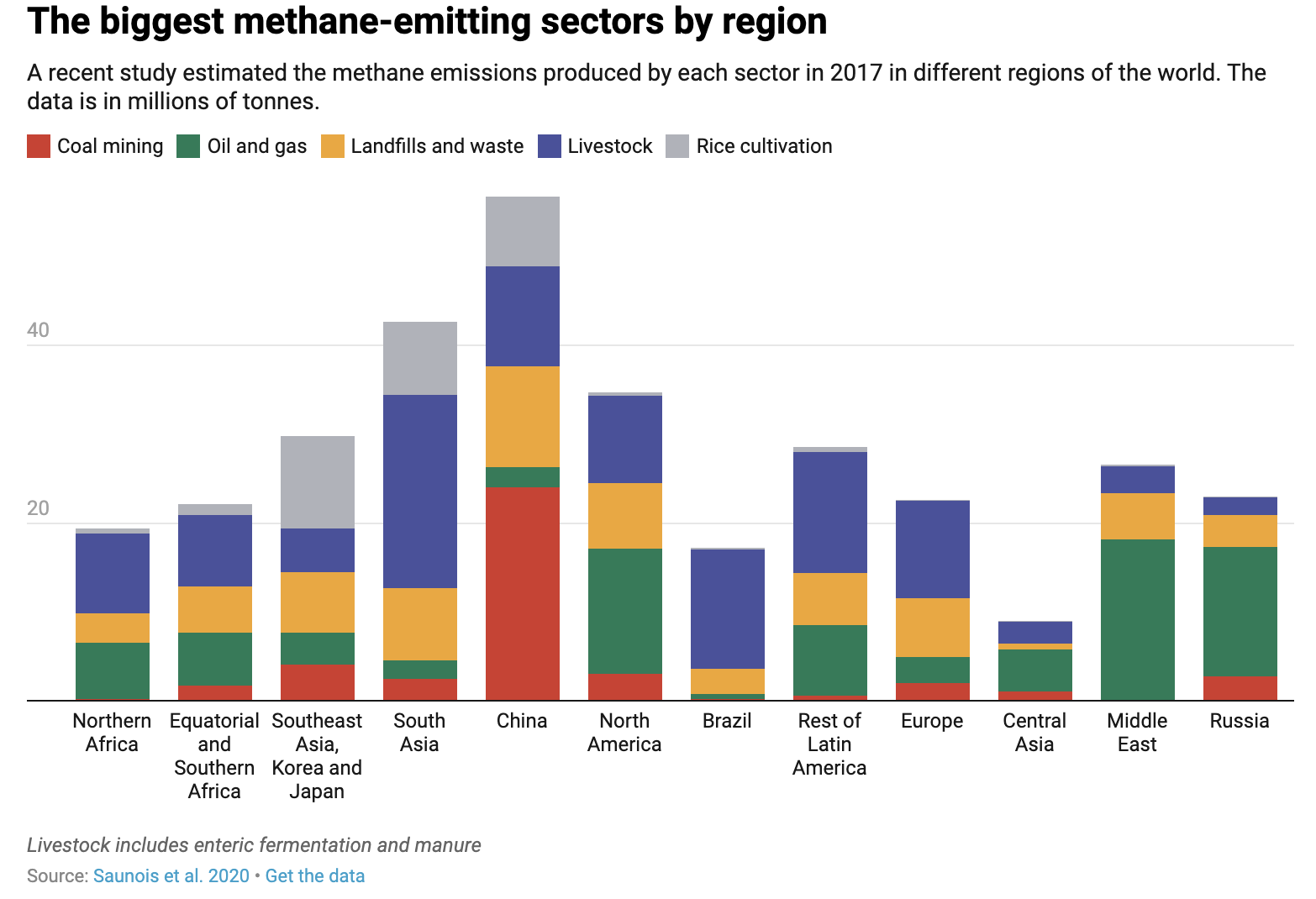
This
summer the UN Environment Programme issued a report stating that
reducing methane emissions is essential to keeping global warming within
survivable limits. Changes in farming practices and human diet can make a huge
contribution. Livestock and rice farming
account for 40% of the human-generated methane emissions, compared to 35% for
oil, gas, and coal mining. Methane is a greenhouse gas 80 times more potent
than CO2, but persists only 10 years in the atmosphere – compared to
hundreds of thousands of years for CO2.. Slashing methane emissions now
will buy us crucial time to keep temperature rise under 1.5 degrees C while we
cut our use of fossil fuels. Methane
also is a primary contributor to ground-level ozone.
On Aug. 20, UNEP published a summary of top
findings from the report:
•
Methane emissions account for about 30% of global warming, and is proliferating
faster than any other time since record-keeping began in the 1980’s.
•
Agriculture is the predominant source of human-caused methane emissions.
•
Human-caused methane emissions could be reduced as much as 45% within the
decade.
•
These reductions would prevent 260,000 premature deaths a year, 775,000
asthma-related hospital visits, 73 billion hours of lost labor from extreme
heat, and 25 million tonnes of crop losses.
ESRAG’s
Plant-Rich Diet Task Force is teaching one of the most effective steps Rotarians
can take: modeling and encouraging consumption of plant-based foods rather than
animal protein. Other actions to reduce agricultural methane emissions include
changing animal feed. Irrigating rather than flooding rice paddies would cut rice
farming methane emissions by half and save water.
Here’s
a summary of the potential impact we can have, from an Aug. 29 article in Forbes
Magazine, ”Influencers called on to Steer Public Discourse on the Climate
Impact of Animal Agriculture:” “Despite
the sizable linkages between the meat and dairy industry and global greenhouse
gas emissions, public policy interventions have focused more on lower impact
policies such as the elimination of single use plastic bags."
According
to a study published in Environmental Research Letters by S. Wynes and K. Nicholas (2017), "eliminating meat for one year would save 145 times more
carbon than eliminating single-use plastic bags for the same period. Going
plant based is also four times more effective than comprehensive recycling and
eight times more impactful than switching" from incandescent light
bulbs to LEDs. A
May 6 article in The Conversation explores the business incentives for preventing methane emissions, and adds: “with the technology
already available today, the world could cut methane emissions from fossil
fuels, agriculture and rotting waste by 45% within a decade. That would avoid
0.3 degrees Celsius (0.5 F) of warming, … one-fifth of the Paris
climate agreement budget of 1.5 C." The graphs shown here are from the article in The Conversation.
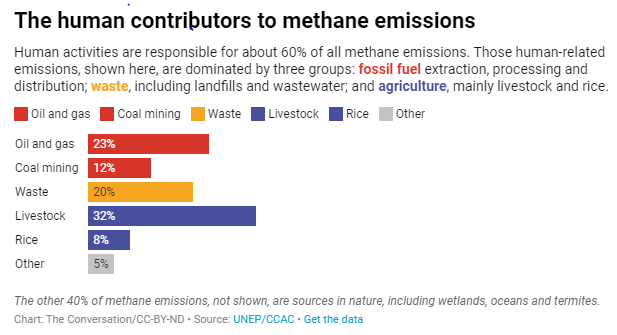 |
|
|
|
|
|
ESRAG Biodiversity Seminars in September |
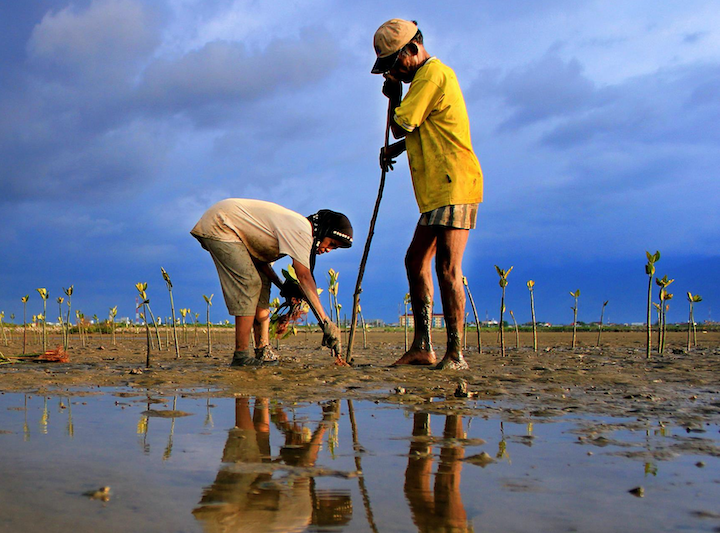
This month's Zoom meetings feature river projects around the world, sharing actions that fit three ESRAG foci: biodiversity, pollution, and circular economy. Here's the schedule:
Sept. 8, Watershed Restoration will explore how we can leverage our daily online presence as influencers to inspire conscious consumerism. The goal: to reduce the use and
disposal of plastics overwhelming our watersheds and waterways. Speaker:
Bryan Ingram, Rotary Club of Washington, DC and CEO of Alpha Green. 3 pm
UTC, 8 am PDT.
Sept. 15, Adopt-a-River, a Model for
Action explores
the intersection between human development and environmental conservation, with
a focus on communities and community-led initiatives. Speaker: Gavin Reynolds, a manager with the UN Environment Programme's Freshwater Ecosystems Unit. 2 pm
UTC, 5 pm EAT.
Sept. 22, River Pollution Remediation:
will discuss how to inspire people to prevent pollution of their rivers, by creating awareness of the immense benefits that they can derive by doing so. This includes combining sewage treatment that fits the context and circular economy, not only to protect water, but also yield energy, food, and mitigation of climate change. Speaker: Dr. Prakash Tata, Co-Chair, ESRAG Central
North America Regional Chapter, 2 pm UTC, 9 am CDT.
Sept. 29, World Vultures in Crisis: Dr. William Bowerman, 12:30 pm UTC, 8:30 am EDT.
These meetings draw Rotarians from all over the world who are working with great dedication and skill on environmental problems. Introductions, questions, and comments in the chat provide wonderful opportunities for networking and mutual encouragement. Once you register for a talk, you'll receive emails with details about upcoming meetings. Register here for ESRAG's Biodiversity Seminars. |
|
Plastics Solutions Task Force Seeks Your Input |
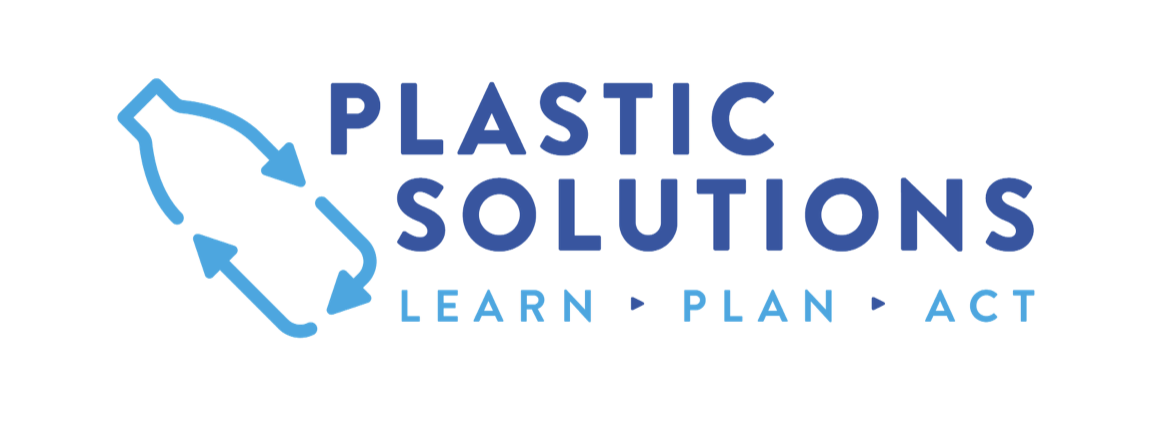
ESRAG’s Plastic Solutions
Task Force is looking for people who want to reduce the amount of plastic
that is accumulating in our world. Its primary goal will be to address
the root causes of plastic pollution, with a special focus on microplastics. It is also collecting and sharing Club project ideas, plastic
reduction strategies for Club meetings and events, landfill/incinerator
diversion projects, and projects that combine plastic waste removal with job
creation or humanitarian goals.
The next meeting of the
Task Force is Monday, Sept. 13, 2 pm UTC, 9:00 am CDT. If your Club has a
project idea to share, or if you wish to join the mailing list or receive
the meeting link, please contact Task Force Co-Chair Lori Cloutier. Jennifer Lucas, ESRAG Central North America
Sept. 20 RMCH Webinar: Safe Maternity, Population, and Development 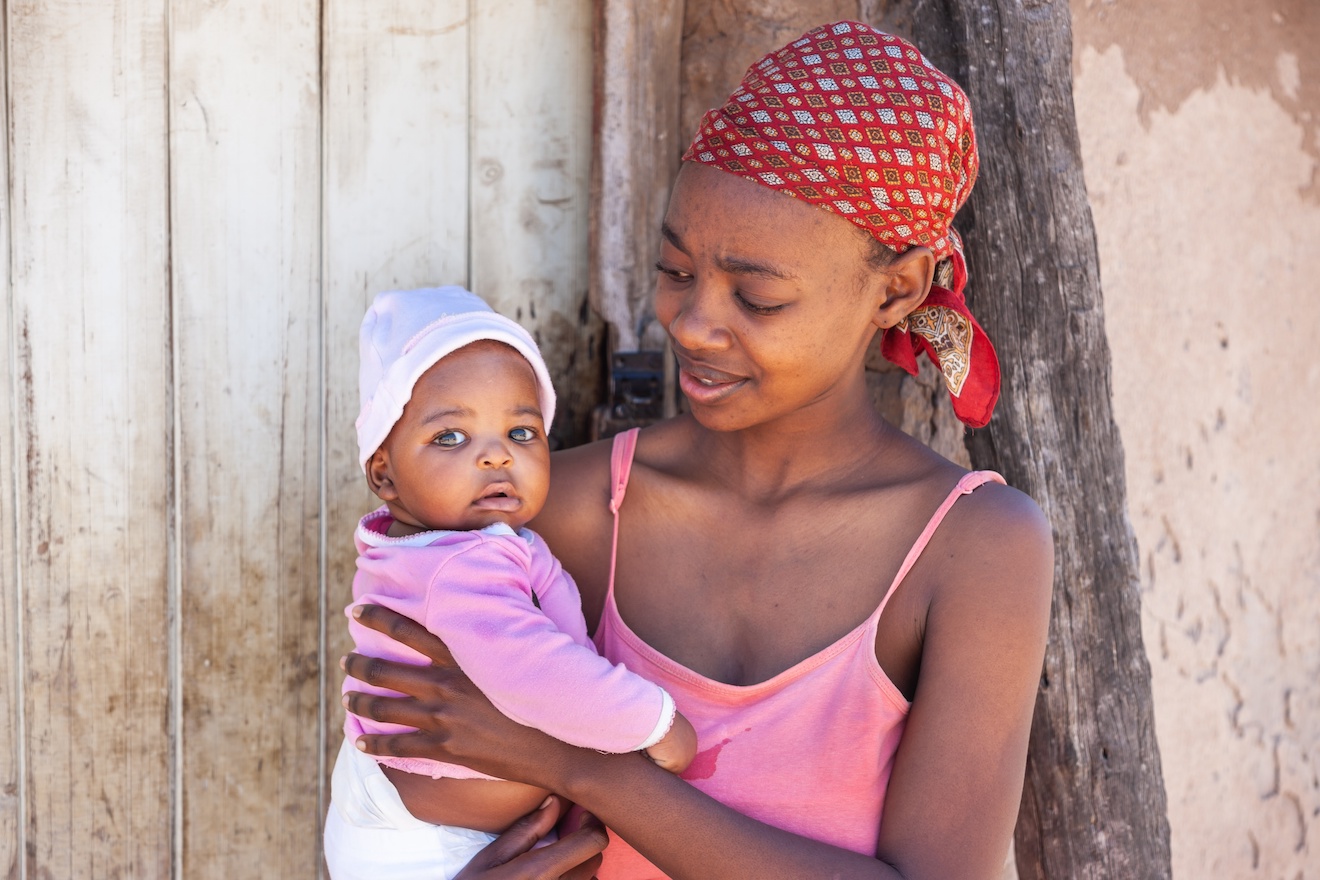
Photo: RMCH
The Rotary Action Group for
Reproductive, Maternal, and Child Health (RMCH) is presenting an online panel
on the connections between safe maternity, population, and development. The
purpose is to help Rotarians cooperate on programs addressing maternal and
child health and family planning. The 2021 World Population Data Sheet projects
that global population will grow from 7.8 million today to 9.7 billion in 2050.
The Guttmacher Institute reported in 2020 that 218 million women want to delay
or limit births but don’t currently use a modern method of contraception. Given
the pressures of growing human population on planetary systems and the implications
for survival and peace, ESRAG members may want to sign up for this talk |
|
|
|
|
|
Read about ESRAG and Rotarians' environmental projects on our new website! Articles without bylines in this issue are by ESRAG Newsletter Editor Ariel Miller (Cincinnati Rotary Club, Ohio, USA). Heartfelt thanks to ESRAG Director Karen Kendrick-Hands and to Jennifer Lucas, communicator for ESRAG's Central North America Chapter, for sending important resources for this issue. Please email news and resources you'd like to share with ESRAG members.
The Environmental Sustainability Rotary Action Group operates in accordance with Rotary International policy, but is not an agency of, or controlled by, Rotary International.
|
|
|
|
|
